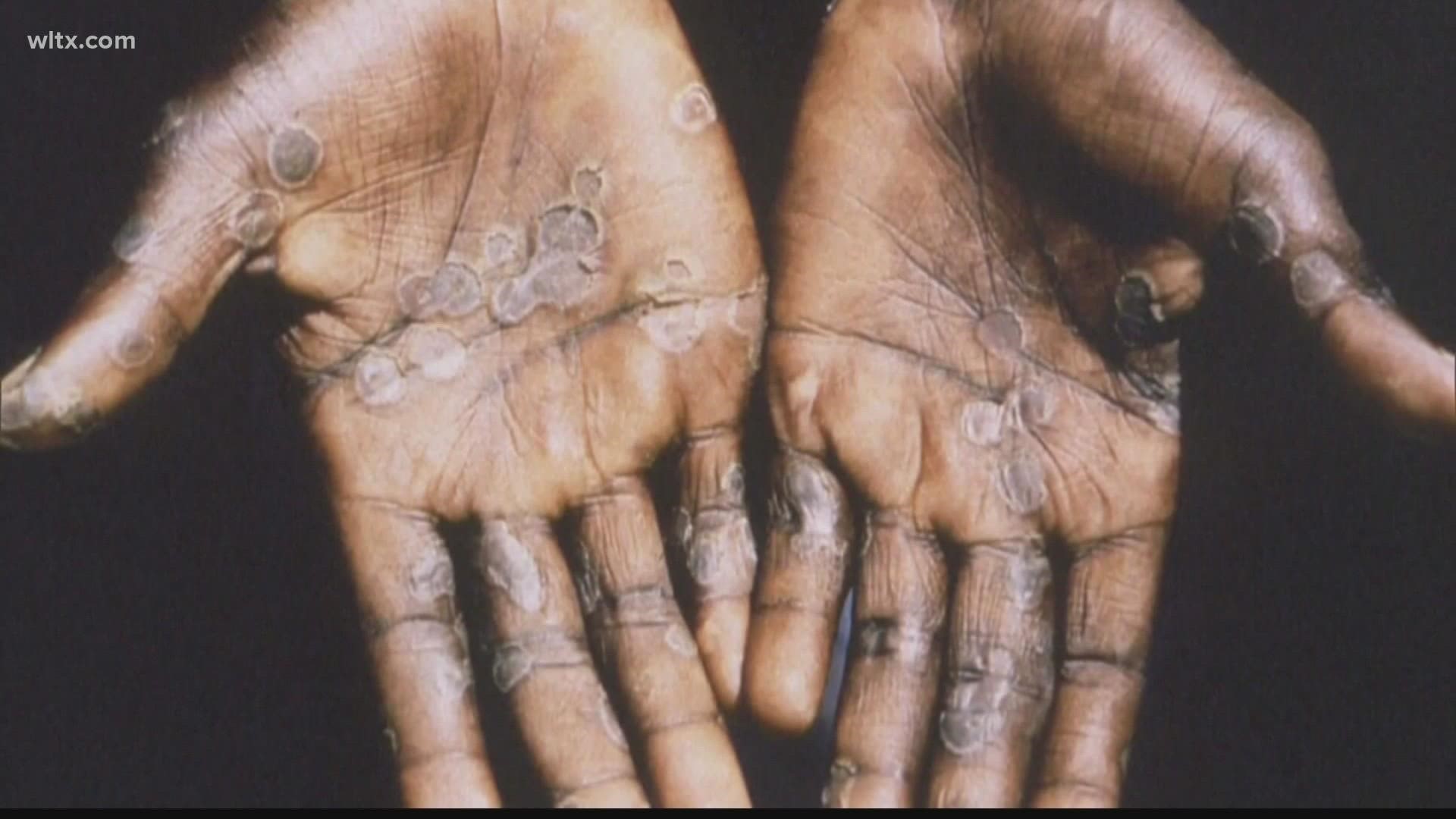COLUMBIA, S.C. — Across the U.S., as cases of monkeypox climb, more people are asking, 'What is it?'
The rare disease, which can cause a blistered rash throughout the body, was first discovered in 1958 when two outbreaks occurred in monkeys kept for research.
Now, the U.S. joins several countries facing an outbreak with the the Centers for Disease Control and Prevention (CDC) reporting more than 1,800 cases nationwide, four in South Carolina.
"How fast does it spread? Is it something we should be worried about?," Tara Teate said. "What can we do now to prevent it?"
News19 took your questions to the experts at the S.C. Department of Health and Environmental Control (DHEC). The agency tracks cases of the disease.
State Epidemiologist Dr. Linda Bell said there's a low threat to the public right now.
There's a vaccine, but fewer than 1,000 doses are available in South Carolina, as the state and nation wait for more from the federal government.
"We have a sufficient supply to offer vaccine to the close contacts of cases that have been identified in South Carolina," Dr. Bell said.
So, how do you get monkeypox in the first place?
According to the CDC, monkeypox can spread from person-to-person through:
- Direct contact with the infectious rash, scabs, or body fluids.
- Respiratory secretions during prolonged, face-to-face contact, or during intimate physical contact, such as kissing, cuddling, or sex.
- Touching items (such as clothing or linens) that previously touched the infectious rash or body fluids.
- Pregnant women can spread the virus to their fetus through the placenta.
RELATED: 4 Fast Facts about monkeypox
"Most of the people in the country who have become infected have not required a specific antiviral treatment that is available," Dr. Bell said. "That antiviral treatment is really reserved for people who have widespread and serious disease. Many of the people who have the lesions develop only on a small portion of their body, but we do know that there are complications, so we want people to take this very seriously because we do have reports of people having lesions, for example, on their eyes… their intestinal tract…. Many people are requiring very heavy duty pain control because of the parts of the body that the lesions involve.”
The illness typically lasts two to four weeks, as lesions attempt to heal.
"This is not a respiratory disease," Dr. Bell said. "So, we don't want the general public to panic. We want people to be aware of close, intimate contact as a means of transmission and the importance of avoiding that while vaccine supply is limited."
To learn more about monkeypox, visit the CDC online.

